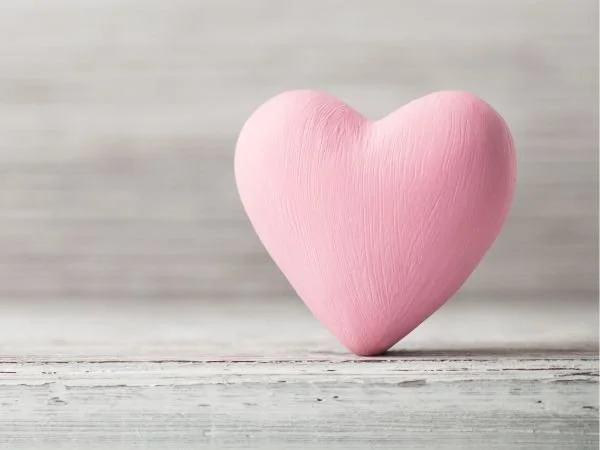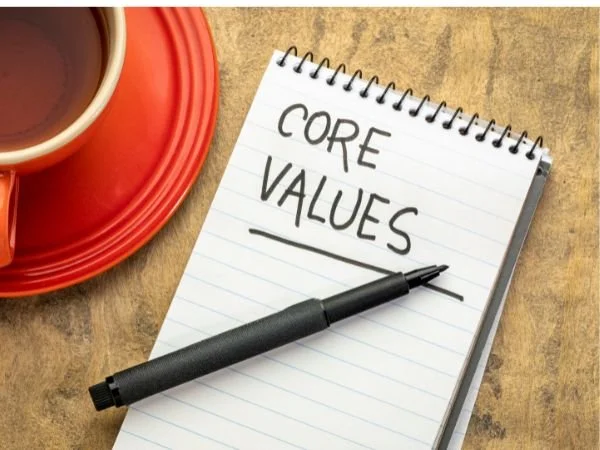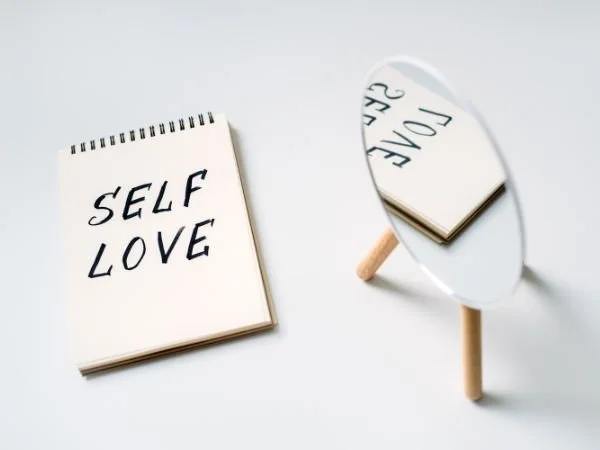137: Why Do I Cry Every Night Since He Broke My Heart?
In this episode, I answer the question: "Why do I cry every night ever since that one man broke my heart?" I explore five possible reasons the pain still lingers—grief, the stories we tell ourselves, the impact of toxic relationships, identity loss, and old wounds that heartbreak can reopen. I discuss why healing can feel so hard, share new perspectives, and offer gentle, actionable tips to help you start moving forward.
Heartbreak Healing Hub 💔
Check out the New View Advice Heartbreak Healing Hub
Heartbreak Playlist 🎶
Blog Post ✍️
Episode References 🗒️
Timestamps ⏱️
Introduction :05
Listener Question: 2:20
Outro: 25:29
Have you followed and left a review for New View Advice?
Let me know what you think of the podcast! Podcast followers and ratings help bring new listeners to the show, as well as help me to continue creating content. So if you enjoyed the show, I’d love to ask you to follow and leave a rating on your podcasting platform by:
Head to New View Advice on Apple or Spotify
Click Follow on your podcasting platform
Scroll down (or when promoted) click the 5 star rating!
-
This podcast was transcribed by an AI tool called Castmagic. Please forgive any typos or errors.
Amanda Durocher [00:00:01]:
Welcome to New View Advice with Amanda Durocher. Hi, beautiful soul. My name is Amanda Durocher and welcome to New View Advice. If you're new here, this is a healing centered advice podcast where I offer guidance for the healing journey. I don't believe I have all the answers you seek. I believe you have all the answers. You just may need a new View and a little help along the way. Thank you so much for joining me for today's episode.
Amanda Durocher [00:00:22]:
Today I am answering the listener question, why do I cry every night ever since that one man broke my heart? I wanted to answer this listener question because I think that there can be many different reasons why you may be crying every night over someone who broke your heart. Heartbreak is painful and it's very uncomfortable because it hurts. When our hearts break and we go through the stages of grief, we feel sad, we feel angry, we feel confused. And so in today's episode, I want to validate how you're feeling, that maybe for you, a stage of this heartache is crying at night. But with this question, I'm not sure how long you've been in this stage and I don't think you need to be here forever. And so I want to offer five different reasons why maybe you feel stuck and find yourself crying every night. Because that should not be the case. We experience heartbreak throughout our lives, but we also process that heartbreak.
Amanda Durocher [00:01:09]:
We also move forward from heartbreak. And I believe that heartbreak, as painful as it is, is an opportunity for us to grow and to learn and to even open our hearts bigger. And my intention for this episode is to help you to alleviate some of that sadness, maybe to feel seen or to bring a new view to your situation. But you definitely don't deserve to be crying over the same man who broke your heart every day. You deserve to move forward. So I want to explore five different reasons why possibly you are feeling heartbroken. So before I jump into the question, I wanted to mention that I have talked about heartbreak many times on the podcast before. So on my website@newviewadvice.com I actually have a heartbreak Healing hub where I've put together all the resources I've created over the years for this topic of healing from a broken heart.
Amanda Durocher [00:01:54]:
So I will link that in the show notes@newviewadvice.com 137 and you can find those there in case you want to dive a bit deeper into this topic or listen to other episodes on Heartbreak as well. So you can find a link to that in the episode description or on my website@nuviewadvice.com 1:37 so with that, let's jump on into today's listener question. Why do I cry every night ever since that one man broke my heart? Thank you so much for this question. First, I want to say I am so sorry that you are navigating this. Nobody deserves to cry themselves to sleep every night. I have also had periods of my life where I cried every night before bed, and they were very hard periods of my life. So first, I just want to honor that, that you are obviously moving through a difficult time, and I hope that you're able to offer yourself grace and compassion throughout this time, because that's really hard. Nobody deserves to cry every night.
Amanda Durocher [00:02:50]:
And I want to help you to bring a new perspective to your situation because I'm hoping that throughout this episode, maybe you can begin to move forward. That doesn't mean you'll feel healed at the end of this episode, but I'm hoping that through these five possibilities, I've come up with for maybe why you cry every night and why you haven't been able to move past the this stage of grief. I'm hoping that you're able to move forward and maybe offer yourself a little bit more compassion and to see your situation with a new view. Because I often feel like when we feel stuck, that awareness, bringing awareness and new awareness to our situation can help us to begin to move forward. And oftentimes, when we bring new awareness to a situation, there are new feelings to feel as well. So thank you for this question. You are definitely not alone. I think many people struggle with this.
Amanda Durocher [00:03:35]:
And I think that unfortunately, a broken heart is oftentimes an inner struggle that people have to deal with on their own. So I just wanna honor you. You're not crazy and your feelings are valid because heartbreak hurts. And I'm so sorry that this relationship that obviously meant something to you ended. Okay, so you asked, why do I cry every night since that one man broke my heart? I wanted to mention here that I don't know the answer to this question. I don't know much about your situation at all. So these five possibilities I'm going to give are little general. But I think that that's actually a good thing because I think that many people can maybe find an answer within this question.
Amanda Durocher [00:04:10]:
And I also think that for you and your situation, maybe having a very broad answer could help you to see your situation in new view. So the first thing I want to talk about is grief. You are moving through the grieving process. Anytime our heart breaks we move through grief. So I don't know how long you have been crying every night, but if it hasn't been that long, it may be a part of your grieving process, or possibly you go through periods where you cry and then where you don't cry and then where you cry again. And that could just be you grieving this relationship. It is very healthy to feel our feelings. So there's nothing wrong with you crying.
Amanda Durocher [00:04:43]:
If you find you've been crying every night for a long period of time, it does sound like you're stuck. But I did want to mention upfront that for some people, you're just moving through grief. You're just moving through the grieving process. There's nothing wrong with crying. There's nothing wrong with feeling the pain of a broken heart. I truly believe that in order to move forward from these relationships that end, we have to allow ourselves the full grieving process. Because if we don't and we stunt the grieving process, oftentimes it comes up the next time you're in a relationship and that relationship ends. It could even be if a friendship ends, it could trigger heartbreak from a romantic partner.
Amanda Durocher [00:05:14]:
These feelings we have will stay stuck within us until we fully process them. And so there's nothing wrong with having all your feelings about this relationship. You likely miss the relationship. You likely miss the man you were with. Maybe you miss how you felt within this relationship. Maybe you felt safe, maybe you felt secure. Maybe you felt like you had a partner, maybe you felt like you had family. And then now you feel like that's been taken away.
Amanda Durocher [00:05:37]:
That is something that deserves to be grieved, right? When we grieve, we're grieving the loss of something, so something has left our life, and we are grieving that that no longer exists. And so for you, this relationship ended, and it's natural to go through the grieving cycle. And so when it comes to grief, there are five stages of grief, which I also talked about in last week's episode. But the five stages of grief are denial, bargaining, anger, depression, and acceptance. And so when we are grieving the end of a relationship, we go through those five stages, and we don't necessarily go through them in order. And we can go through them multiple times. It doesn't mean you go through all of denial at once. Grief comes in waves.
Amanda Durocher [00:06:16]:
And so I find that when we're grieving, these are the stages that come up, and sometimes they come up again and again, or sometimes were able to move through them in one fell swoop, but it depends on the relationship and the situation that you're navigating, because sometimes when a relationship ends as well, we're grieving multiple things. So for you, you could be grieving that this person's no longer in your life and you've lost a person who you once loved. You could also be grieving a family you once had. So say this was a marriage and this was your husband and you're going through a divorce. You could be grieving family as well as your relationship. It's a different stage of grief because it's another form of loss. You could also be grieving the version of yourself you were in that relationship. You may also be navigating the grief of losing your friend, group, or your previous social situation.
Amanda Durocher [00:07:03]:
There are many things you could be grieving at once which could lead to you having a lot of feelings at one time. So my piece of advice for if you are navigating grief would be to allow your feelings and not to judge them, but also to find a new way to process your emotions. So if your grief constantly comes up at night, maybe during the day, you want to make time for your sadness and you want to journal about it. You can meditate or you can find a creative outlet. I find many times when we feel sad or we feel grief, creativity can be really helpful. Also Listening to music so maybe you don't play music, but maybe you just want to listen to some songs that describe how you feel. I have a heartbreak playlist that I'll link in the show notes@newviewadvice.com 137. But sometimes listening to people sing about heartbreak can be really helpful.
Amanda Durocher [00:07:49]:
Taylor Swift has so many songs about heartbreak. That Woman has expressed all the different stages of heartbreak as well as all the different feelings that arise while we're healing. I think that her music is so helpful in helping us to feel seen in our heartbreak, so I recommend listening to maybe some Taylor Swift or someone else. I have a bunch of songs on that playlist that I will share in the show notes. So if you feel like you're really just in the stages of grief, find different ways to feel those feelings. So crying is therapeutic, but if you're just crying over and over again, it sounds like you're not fully processing that sadness. So finding a new way to feel that feeling could be helpful. The second possibility here could be that you are telling yourself stories or you have beliefs about what this relationship meant.
Amanda Durocher [00:08:35]:
So maybe you felt like this person completed you, or maybe you feel like you're not enough or without this person. Or maybe you feel like this person was more worthy than you, and when you were with them, you were worthy, and now without them, you're not worthy. These type of stories are untrue. You deserve love with or without this person. You are enough. With or without this relationship, you are a worthy human no matter who you are with. And so there are different stories we can tell ourselves. And when we are struggling to move past the grief of a relationship, it could be that that person represents something that we haven't quite let go of yet.
Amanda Durocher [00:09:12]:
So if that person represents worthiness to you, that the only way you're worthy is with them, then, yes, you're going to continue to cry about that because you're not going to feel worthy within. So my advice for this possibility, if there are stories you have attached to this relationship, would be to write down the stories you tell yourself. What did this relationship mean to you? What do you tell yourself about yourself within this relationship? What do you tell yourself now that this relationship's over? What are the stories and the thoughts and the beliefs that you repeat to yourself over and over again? Because my guess is at night, when you're crying about this relationship, you also have a mental loop you're playing. So this mental loop could be cruel words you're telling yourself over and over again. Cruel stories. They could be critical stories. They could be stories of regret or guilt. I don't know what they are, but if you're having trouble moving past this person, you're crying every night.
Amanda Durocher [00:10:03]:
My guess is that there are some thought patterns and there are some mental beliefs about this relationship that you need to begin looking at one by one. Because again, you are enough, just as you are. You are a beautiful human. You are a beautiful soul who does not deserve to cry every night over a man who broke your heart. The truth is, you deserve better than somebody who breaks your heart. It doesn't mean the whole relationship was bad, but you deserve better than that. And you're going to find somebody who protects your heart, who keeps you safe. Because that's what true love to me is.
Amanda Durocher [00:10:33]:
It's when we find relationships where we feel safe and secure and where we're able to grow together. And somebody who broke your heart wasn't the person for you. And we don't have to create stories about what that means. My guess is, for you and for anybody listening, is that there's somebody out there who's a better match for you. And that's beautiful. But right now, this heartbreak you're moving through is teaching you something, and it's okay to be with that right now. The third possibility that could be happening here, which kind of goes off of the stories we tell ourselves, is that I have found in my life that sometimes abusive relationships or toxic relationships are actually harder for us to move on from. Why is that? I was reflecting on this question and I was like, have I ever experienced this? And I had this flashback to college before I met Evan.
Amanda Durocher [00:11:25]:
I've been with my partner for a very long time, but before I met my partner, I dated this guy who we only dated for, like, two months. I don't even really know what to call the relationship. It was never like a boyfriend, but we dated. And when that relationship ended, I cried, like, every day for a month. And I remember I had a friend at the time, God bless his soul, who looked at me in the eyes and he said, amanda, he's not that great. Move on. And it snapped me out of something. Like, I had put so much on his.
Amanda Durocher [00:11:58]:
Him. And when I was reflecting on what was that? What did I put on him? Was it stories I told myself? What was it that left me crying every night? So when I was reflecting and thinking about this college relationship that left me crying all the time, I also cried a lot in high school about my high school boyfriend, who was also very toxic and abusive. And I write about my high school boyfriend on my website@newviewadvice.com I'll link that in the show notes as well. If you're interested in reading me reflect on that relationship. Because I learned a lot through that relationship. And I would say that person from high school had narcissistic traits and what it was like to be with somebody narcissistic who was changing my point of view and changing my view of reality. That's what happens in these abusive relationships, by the way, because the same thing to a lesser degree happened with this college guy that I dated was that he used confusion, manipulation, and making everything my fault. So a form of gaslighting to confuse me and my reality.
Amanda Durocher [00:12:52]:
So somehow, anytime he did something to hurt me, he twisted it that I had done something worse to cause him to act like that. And one of these things was even the reason our relationship ended was that he cheated on me and he decided to tell me on Christmas. Really? You had to tell me on Christmas? Anyway, moving on. But he told me, and I got really, really upset. Naturally. I was 19. I was cheated on. Honestly, if I was 45 and cheated on, I'd still get really upset.
Amanda Durocher [00:13:23]:
So we weren't technically together, though. It was one of those type of relationships. So he twisted it that I wasn't allowed to be angry, that I was crazy, that I was an awful person. And he got really mean. And when we got back to school, he wouldn't speak to me, but he would talk about me with all my friends. He rewrote the situation that somehow I was a really bad person who had abused him. And I'm not gonna say I was perfect and I was like the best person to be with. But he wrote the story and made me feel crazy, which often happens when we are being gaslit.
Amanda Durocher [00:13:57]:
We feel like we are going crazy. And he created so much confusion for me and made me feel so bad about who I was inherently that I cried every night at the end of that relationship. And it wasn't because I was crying over him. It was that I was crying because I felt like I was the worst person in the world. And I felt like if the relationship was working, then I was a good person and it meant that I wasn't the worst person. But the fact that it ended and he twisted the narrative and talked about me for literally four more years and into my time in la, but it was crazy. Looking back on it, I don't know why I've never really reflected on this relationship until receiving this question. I kind of have experienced a lot of trauma, so I feel like this relationship just was on the back burner.
Amanda Durocher [00:14:41]:
But he literally confused me about who I was. And so that's gonna lead me to my fourth possibility, is that you're going through an identity crisis. But before I jump into identity crisis, I want to say that sometimes when we are in abusive relationships and toxic relationships and those relationships end, our emotional stability is rocked afterwards. Because in that relationship, we were not stable, we were not safe, and we put so much on that person because that person almost makes you reliant on them. Because sometimes in these relationships, you're searching for that stability and that safety, and they're kind of always moving the guard post and they're making it your fault. And until we know who we are, it's easier to be manipulated. So as a young woman, it was easy for me to be manipulated because I didn't know who I was. I'd experienced so much trauma in my youth.
Amanda Durocher [00:15:37]:
I had just gotten out of a really abusive relationship with my high school boyfriend when I met this guy. And he was able to twist my point of view of the world. And when people do this and they manipulate our view of the world or they manipulate us. It's so subtle. So sometimes in movies, gaslighting and manipulation, it's so obvious. Most of the time it's subtle. It's emotional manipulation. It's slightly making you feel bad, making you feel guilty, making something that wasn't your fault, your fault.
Amanda Durocher [00:16:07]:
But not outrightly ever saying that's your fault. It's like, through the guilt. And so this person that I'm referring to used a lot of guilt. He made me feel really bad for who I was. And even when he ended things with me, he took a lot of my good qualities and twisted them so they weren't bad. So when I got out of it, I was like, do I even want to be who I am? Because apparently being fun is a bad thing. Apparently being really outgoing is a bad thing. And he twisted my view of myself because I wasn't grounded in who I was.
Amanda Durocher [00:16:34]:
And so I wanted to share that here because I don't hear that one a lot, that sometimes when we're in abusive relationships, they're more heartbreaking because not only did we lose the relationship, but we lost ourselves within that relationship. And so my advice for this would be to really journal about this relationship and get clear on how you felt throughout the relationship. Did you feel safe with this person, or did you feel like you always had to impress this person? Did you feel like you had to change yourself through for this person? That is a red flag. If you have to change who you are to make someone else happy. That should never be the case in a healthy relationship. In a healthy relationship, you and somebody else will come as you are, and you will love each other as you are. And that's the gift of that relationship, is that they help you to embrace your authentic self, not tear you away from your authentic self. And so this leads me to possibility four, which is identity crisis.
Amanda Durocher [00:17:32]:
So if we are going through an identity crisis, it is so disorienting. I've gone through a lot of identity crises in my life. I feel like as somebody who struggled with repressed trauma, every time new repressed trauma comes up, I'm like, wait, who am I? What is my life? What is my reality? And as I heal and I see the world clearly and other people don't want to look at certain things about life again, I go through an identity crisis where I'm like, wait, what? So I only mention that because when we don't quite know who we are, it is very, very disorienting. So for you crying every night, it could be because you've lost Your sense of self. You've lost your center. You don't know who you are without this relationship. And so my advice for this is to begin focusing on you. What do you like? Who are you as a person? What are your values? Time and time again, my values reorient me to who I am.
Amanda Durocher [00:18:30]:
I believe everybody has three core values. These can change throughout your life. Not like all the time, but about a year ago, my values shifted a little bit. But right now, my values are freedom, compassion, and truth. Those are the three words I live my life by. I also identify as a survivor, an artist, and a woman of faith. And so if I ever find myself feeling confused, I reorient myself to my values and the three things I identify as. And so for you, if you are unable to answer what your values are or who you are inherently, who you want to be, who you want to embody, those are things to begin asking yourself and reflecting on.
Amanda Durocher [00:19:08]:
Because when we lose ourselves in relationships, it's so often that we wanted to be loved, and there's nothing wrong with wanting to be loved, but we shouldn't have to lose ourselves to be loved. To me, that's not lasting love, because we can't live away from ourselves for that long. We can, but then we begin to numb or freeze, or we begin to avoid ourselves, or we become disconnected from ourselves. And we have one life here. You can have your belief about maybe the past lives or whatever, but the truth is you have this moment and you have the next moment. You have, like, right now. That's what I believe. That's how I live, is that we have the present moment.
Amanda Durocher [00:19:48]:
And you deserve to be be connected to yourself. And it doesn't mean we don't ever lose ourselves in relationships. I've been with Evan, my partner, for 14 years, and I've lost myself throughout the relationship. I've had to find my way back. I mentioned going through identity crises multiple times throughout my life. It's not that we always have that. But again, if you find your values and things, you identify with who you want to be like, I want to embody being a survivor. I want to embody being an artist, and I want to embody being a woman of faith.
Amanda Durocher [00:20:15]:
Those are my guiding principles. And if you can find those for yourself, it could help you to get out of this rut if you feel like you've lost yourself. And so on my website, I'll link a values list, I'll find a website with a bunch of values, and you can see what words resonate for you. It's actually a really great exercise to do for yourself and in any relationships you have. It's a big part of my relationship with Evan is knowing that we're aligned on values. So that helps us with our relationship and helps us to really understand who we are inherently. Because the truth is, as humans, we have different values. And it's one of the gifts of life is that we get to align our lives with our values.
Amanda Durocher [00:20:51]:
But that could be a really helpful exercise for you. So that's my advice, is to focus on your values if you feel like you're going through an identity crisis. The fifth possibility I wanted to mention is that this relationship is triggering past wounding. So this relationship that you're currently navigating, the feelings you're feeling could feel so deep, yet not moving. Because it could be triggering grief or feelings from a past relationship, or it could even be triggering a parental wound. Sometimes when heartbreak happens, our inner child comes forward. So I've talked about the inner child a lot on the podcast. I'm sure I've talked about in other heartbreak episodes.
Amanda Durocher [00:21:28]:
But the inner child is the part of us that can still hold onto wounding from the past. And so possibly that inner child wound is triggered. So for me, when I talked about that college relationship that was a bit abusive, I hadn't actually spent a lot of time thinking about that relationship. Because when that relationship ended, it actually really triggered the high school relationship I hadn't fully processed. So I spent a lot of more time processing the relationship I was in in high school. Cause it was a lot longer and a lot more abusive that I realized that the heavy feelings I was having were one, that this person was manipulative and I lost my sense of self. But also it was triggering this wounding of a young girl who had never been with a man, who showed her what it was to be loved. She had only been in relationships with boys, honestly, at that point, but who had used her and abused her and had taken from her.
Amanda Durocher [00:22:23]:
That's how it feels, is that they wanted me to make them feel better. That is an immature form of love. That is not human love. To use me and my femininity to make you feel better or to make you feel good about yourself. That is not love. And so I had only experienced that in those two relationships that I was supposed to make them feel better. And they didn't really care about how they made me feel. And so that was past wounding that I had to work through.
Amanda Durocher [00:22:52]:
Also, sometimes parental wounds arise when we go through heartbreak. I found this to be True in friendships and in romantic partners, that sometimes if we didn't feel loved enough as a child, we didn't feel like we were enough, or we didn't feel worthy, or we felt like we had to be a people pleaser, or our trauma responses were coming up, or our attachment styles that can be connected to our relationship with our parents. And possibly the reason you're struggling to move past this is that there's a deeper wound that needs tending and deserves to be looked at. There's nothing wrong with that. That is the healing journey is healing and tending to the young one within us. Those parts within us. I think it's such an important part of growing up, is to heal and to be with the young one within us. I think that's how we step into being responsible and safe adults who others can depend on and who we can depend on.
Amanda Durocher [00:23:42]:
That's what's most important, is that we do this healing work for ourselves so that we feel safe, so that we feel loved, so that we feel that compassionate nature all the time. And by all the time, of course, there's moments where you're not gonna feel it, but where you have the tools to go back to that sense of safety, to go back to that place of compassion. That's really, to me, why we do the work, is that we become the safe person, the loving person we always needed, and we get to be with ourselves throughout our whole life. And that's a real gift. So I hope something in this answer was helpful. If you are still struggling, I do invite you to get professional help. I think a therapist could really help you to navigate this, especially if a lot of the information I talked about here is for you. I think that a therapist could help you to work through this.
Amanda Durocher [00:24:24]:
You do not deserve to cry yourself to sleep every night. You do not deserve to be stuck in this heartbreak. We should never be stuck forever in our pain, in our heartbreak, or in our grief. So I invite you to find professional help. I think that working with somebody could really help you to at least get unstuck, and that can be really helpful. There's no shame about going to therapy. I've been going to therapy for a super long time. I'm still in therapy.
Amanda Durocher [00:24:46]:
I'm not sure I ever won't be. I also have an episode about good versus bad therapy. If therapy is something that's new for you or you've had a bad experience in the past, I explore that in a previous episode, which I will link in the show notes@nuviewadvice.com 137So thank you again for this question. I hope something in here was helpful and if anything, please be kind to yourself. Please offer yourself the love and the support you need and if you find yourself crying at night, reassure yourself in those moments that you are okay and you will not feel like this forever. You deserve to be happy, you deserve to be in a loving relationship, and you deserve to feel free of this relationship that is still causing you pain. Thank you again for joining me for another episode of New Advice. As always, I'm so grateful to have these conversations each week.
Amanda Durocher [00:25:35]:
If you haven't already, I invite you to rate the podcast. That's a great way to support the podcast is to leave a rating and a review. So thank you so much if you've already done that and thank you if you are going to do that right now. Thank you again for joining me for this episode of New View Advice. As always, I hope I was able to offer you a new view on whatever you may be going through. Sending you all my love. See you next time.


































